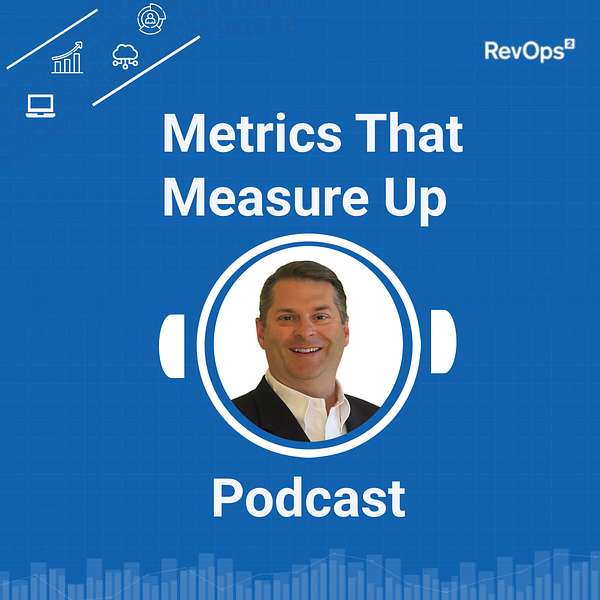
Metrics that Measure Up
Metrics that Measure Up
RevOps - as a canary in the coal mine - with Jordan Henderson, ringDNA
Jordan Henderson is a lawyer by education, who transitioned into a B2B tech career that has spanned sales operations, customer sales, sales management, and ultimately revenue operations. This well-rounded career journey led Jordan to a career in Revenue Operations.
RevOps can be the "canary in the coal mine" for a B2B SaaS company. Revenue Operations are problem solvers. Being able to monitor the day-to-day "Go-to-Market" operations provides a unique opportunity to be an early warning factor when things are not performing as planned.
Being a trusted "canary" requires building credibility through the consistent use of foresight and insights into the customer acquisition, retention, and expansion processes. When asked about RevOps being a "tactical, reactive" function versus turning strategic, proactive insights into predictive foresight, the conversation took an interesting turn.
To move from tactical to a strategic function, Jordan recommends proactively taking a larger role in "business operations". Go beyond providing reports and dashboards to the executive team, and instead analyze what the reports/dashboards you developed are telling you about the future of the business and Go-To-Market performance.
A pre-requisite to becoming a strategic partner, RevOps professionals need to first learn everything possible about the functions you are supporting, including marketing, sales, and customer success. Then instead of just responding to administrative requests, come back with not only the requested deliverable but also recommendations on how to improve the information you just delivered.
Jordan also highlighted why it is imperative to understand how the company level objectives, like ARR Growth, CAC Payback Period, and Net Dollar Retention are impacted by the "leading indicators" that RevOps has unique insight and access. If you focus on the "outcomes" that your boss's boss cares about, you are much better positioned to be a strategic advisor to the CEO and CFO.
The path to RevOps is well served by having experience in the operating roles you are supporting. Jordan has sales, sales management, customer success, and business operations experience which has informed his orientation to the strategic impact that Revenue Operations can have on revenue growth and pipeline performance. When I asked about being held to "objectives" that you do not ultimately "CONTROL", Jason highlighted that RevOps can have more impact on company and revenue performance than any single, quota-carrying rep.
Next, we turned to how the customer journey can be impacted by RevOps. Jason agreed that in theory, this is a good goal, but that Revenue Operations does not "YET" truly understand the internal customer buying process, and is something that should be factored into how internal processes and inter-departmental hand-offs are managed.
Finally, we discussed the sales technology tool landscape and the potential evolution of a revenue operations platform. The first step Jordan takes towards the goal of a revenue operations platform is the consolidation of existing Martech and Salestech. Vendors like Syncari, Clari, and Kluster are three early market leaders. The RevOps Squared Revenue Operations framework, which is comprised of three layers: 1) Data; 2) Process + Platform; 3) Business Insights.
If you are aspiring to be or already are a revenue operations professional, or a Chief Revenue Officer considering the creation of a Revenue Operations function, Jordan is a great listen.